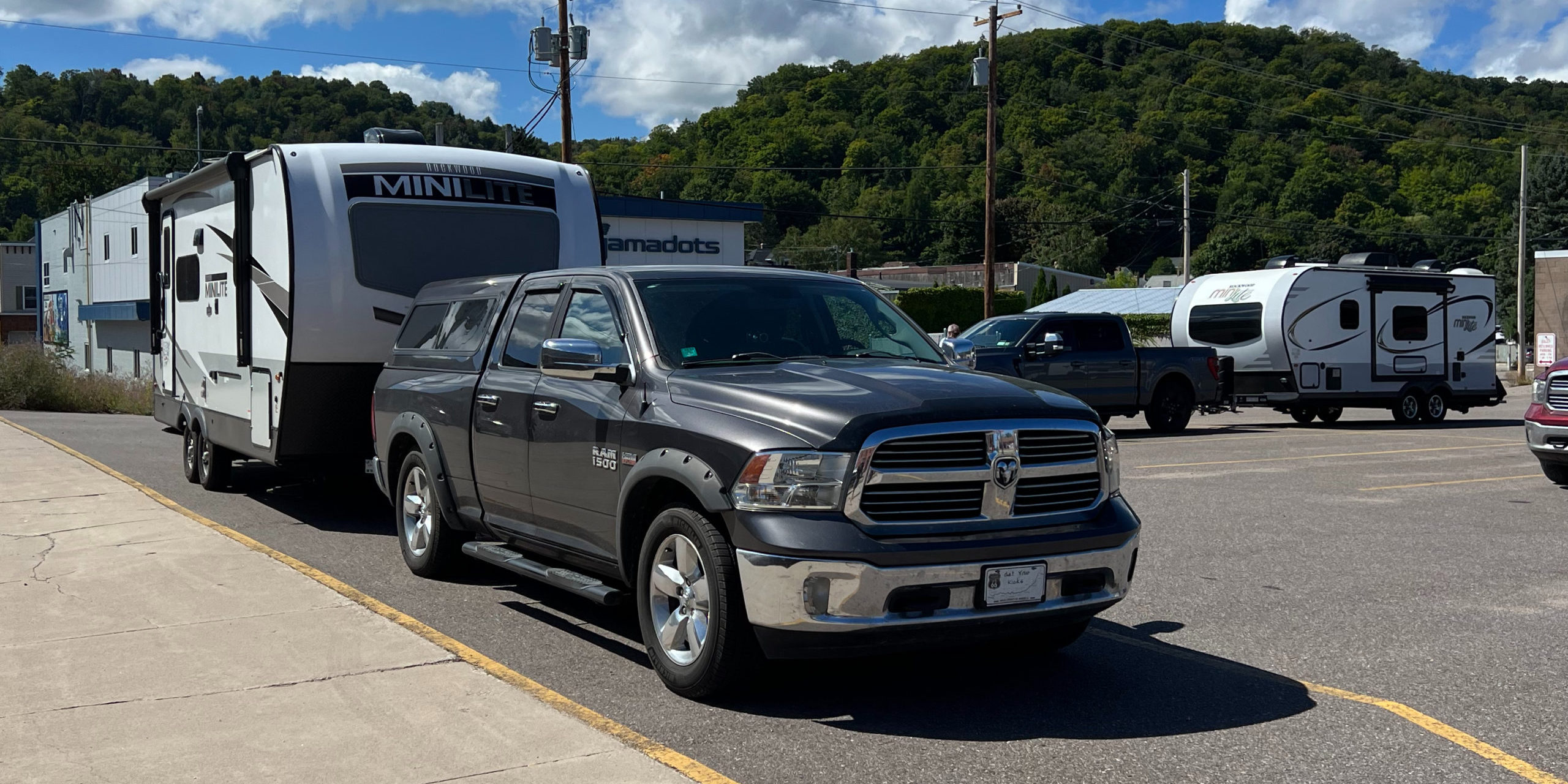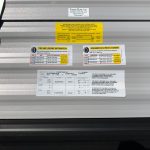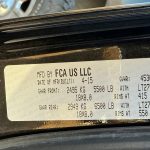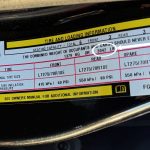Look, we get it. You’re all fired up to launch into the RV life. You’ve been shopping travel trailers and fifth wheels, studying floorplans, and reading RV reviews. But for towable RVs, don’t forget to factor in a huge component — the truck to tow your RV with. Picking the right pickup is a big decision that will have an impact on how well and safely you tow your RV trailer. But, and this is common, you might ask: How do I choose a pickup truck to tow my RV with so many options in today’s market?
As someone who sold a lot of towable RVs, I understand the dilemma. It can seem overwhelming. But here’s the good news: It’s not actually that tough to find a truck to tow your RV. And, naturally, we have tips for making the process easier.
Weighing in on Towing Capacity
All the manufacturers of pickups seem to be in some sort of race to see how big a number they can advertise when it comes to pulling capacity of their truck. Okay, they call it towing. But what is not common knowledge is that your tow vehicle, no matter what you chose, actually carries about 15 percent of the weight of a travel trailer and sometimes up to 20 percent of the weight of a fifth wheel.
What does that mean?
It means that your truck has to be able to safely carry that weight. And you should know that that trailer’s weight is probably much more than is on the yellow sticker near the front. That’s the trailer’s shipping weight.
Trailers are scaled at the end of the assembly line. But that number does not include everything. Neither propane, nor water, nor batteries, nor any of the essentials we all load into our RVs are factored into that number.
We all know that when we get a new trailer we load it up with propane, batteries, food, utensils, and clothing. (If you’re here, I imagine you’ve been on those Facebook groups asking what you need to buy now that you have a new trailer.) Well, all that stuff counts as weight.
GVW and Hidden Weight
All modern vehicles have a data sticker inside the door that tells what the gross vehicle weight (GVW) of that vehicle is. It also tells what the unladen weight, or curb weight, of the vehicle is. Curb weight is generally calculated with a full tank of fuel and all the other necessary fluids in the vehicle but no passengers.
Unfortunately, those passengers count as cargo. So, if you’ve loaded your vehicle to capacity with passengers, that subtracts from the ability of the truck to tow your RV.
Another Big Number to Know: GCWR
There’s one more number to be cognizant of — the gross combined weight rating (GCWR). The gross combined vehicle weight rating (GCVWR) is the maximum weight of your vehicle and trailer together. In most cases, this will be higher than the GVWR because you can tow a heavier load than your truck bed can accommodate.
This is because the bulk of a trailer’s weight rests on the trailer’s axles, not on your vehicle’s. Instead, GCVWR is mainly constrained by your brakes. Even if you can pull a load, you still need to be able to come to a stop safely.
How to Hop on the Scales
One of the best things you can do is have your truck and trailer actually weighed when it’s loaded for travel. You know, the bicycles, floaties, that relative that always manages to come with you, and the trailer loaded with all the food and must-haves for your adventure.
Places where big trucks congregate will often have what is called a CAT scale. For about $14 you can have the truck and trailer weighed. The ideal thing to do is to weigh the truck and trailer. And then weigh the truck alone. This will give you an idea of what you’re dealing with.
Many of the RV rallies held by the Family RV Association (formerly FMCA) and Escapees have someone on-hand who can weigh your RV wheel-by-wheel giving you a very accurate reading. There are also scales you can buy to specifically measure tongue weight of your RV if you have a travel trailer.
I will also tell you this can be expensive — at least indirectly. After scaling my own rig, I almost immediately bought a more capable truck.
Options: The Hidden Factor for Towing Capacity
Something I always thought was fascinating was going to a vehicle dealership that sells pickups and looking at what are mostly identical trucks side-by-side. The cargo carrying capacity of one truck can be significantly different than what seems like an identical truck next to it.
What gives?
It’s the options. They matter. Some options, like those giant glass sunroofs, take away from the cargo carrying capacity. Because they’re heavy. All those luxury features that make a pickup feel more like … a Cadillac. You know, heavy.
I’m not telling you not to get a truck that matches your style, but I am telling you to be well aware of the numbers first. It could come at cost to your towing capacity.
Another thing, towing a trailer in the US that weighs over 3,500 pounds means that that trailer has to have brakes activated by the tow vehicle. One of the options you’ll want is a towing package that includes a brake controller. This allows you to manage the trailer’s braking system.
These can be added after market, but, often times, the built-in towing package will also monitor the number of miles the trailer is accumulating. And some will also have sway mitigation or other technologies that make towing better.
Deciding Between Diesel and Gasoline
There is no single answer to this. A lot of the decision has to be based on what you’re towing now and what you hope to tow in the future.
There’s no denying that the torque of a diesel engine — plus the sound of a diesel engine — appeals to people, including myself. But the higher cost of that diesel engine, including maintenance, means you have to absolutely have a need for the additional torque. Or just want the darned thing.
Further, diesel fuel isn’t as commonly sold as gasoline. Every podunk city has several choices for gasoline but not necessarily diesel fuel. (For the record, I like traveling to podunk little towns. They’re interesting.)
There have also been recent cases where some diesel engine emissions systems have had issues significant enough to shut the engines down. As an RVer, that could leave you stranded in the middle of nowhere.
Fuel Economy and Exhaust Braking: A Deeper Dive
While a diesel engine will deliver better fuel economy that difference may not be enough to justify its additional cost. If fuel costs are your only consideration, it’s difficult to justify on this basis only unless you drive a lot of miles.
Some of the advantages of a diesel engine in the past, including exhaust braking, are minimized by newer automatic transmissions that use creative gear choices to accomplish similar things to exhaust braking. I know the eight-speed automatic in our own Ram truck will automatically downshift going down hill when hauling our trailer to the point that I often don’t have to even touch the brake pedal on mountain descents.
Further, a diesel engine is heavy. Look carefully at your numbers before making a buying decision as some diesel variants of pickups are actually able to carry less weight due to the weight of the diesel engine.
Benefits of a Bigger Truck: A Personal Aside
We had a relatively light-weight trailer (Rockwood Mini Lite 2205s) that probably every RV dealership would swear was “half-ton towable.” So, I had a Ram 1500 half-ton truck. This truck, from the factory, had a 1,710-pound cargo carrying capacity.
Looking just at that, and the advertised tongue weight of the trailer, you’d think I was fine.
But then add batteries. And full propane bottles to the tongue of the trailer … and all the things we typically carry in the front passthrough storage. Also, the truck had a fiberglass cap on it and running boards plus a few other options. Then we’d also typically bring E-bikes and camp chairs. Nothing unusual , but all of this counts against the cargo carrying capacity because it is cargo.
Oh, and don’t forget that those weight distribution hitches typically weigh close to 100 pounds when you figure the weight of the whole thing.
Plussing Up and Peace of Mind
So, we were close to the capacity of that truck. Yes, it pulled the trailer even in the Rocky Mountains and over the Tetons. Seriously. But we were so close to the capacity of that truck that we moved to a three-quarter-ton Ram 3500 truck. Among other things, this more capable truck has specific mirrors designed for towing.
What’s not in the numbers is the difference in confidence and capability. That more capable truck is so much more relaxing to tow with. While winds and passing trucks would buffet the half-ton truck they don’t phase the bigger truck. I feel much less affected by road conditions and weather conditions in this truck and arrive at the campground much more relaxed.
Dangers of Overloading
I read a lot of comments on social media from people who say they know their truck is fine. They’ve been towing for years with what they have. Or they’ve added crutches to the truck like air bags, which I also did to the half-ton truck I traded in.
But consider this. Friends at the California Highway Patrol have told me that, if a vehicle is involved in an accident and they suspect that it’s overloaded, they have the ability to weigh what’s left of the wreck and determine if it was, in fact, overloaded.
In that case your insurance company does have the right to deny the claim. I’m serious.
I’ve also seen quite a few situations where people had been towing for years and something happened. Things like an errant driver swerving. Or a deer jumping into their path and the barely-capable truck they were using suddenly was overwhelmed by the situation.
So, Which Truck Is Best? The Numbers Don’t Lie
Suggesting any one brand of pickup might be akin to asking some folks to change their religion. People can be very passionate about what brand of truck they prefer. Each brand of pickup offers a wide variety of capabilities and features that may suit you and your towing situation. Once you know the numbers of what you want to tow, you will be smarter about what you need to accomplish that task.
No matter what an RV or truck salesperson tells you, it’s the numbers alone that give you the answers.
If it matters, there are trucks with some pretty impressive features nowadays, including digital systems that help with backing and more advanced towing technologies. There are also trucks now with on-board systems that can provide electrical power to the trailer. Naturally these features might be important to some buyers but know that some of these more advanced features also come with a weight penalty themselves. (But a friend of mine has a truck with a built-in generator and it’s pretty cool as we’re avid boondockers.)
Safety Is Premium for a Truck to Tow Your RV
Having a truck to tow your RV that can safely and confidently control your trailer makes a huge difference in the chances of you and your family safely getting to your destination. Plus, a tow vehicle that is truly able to handle your trailer with some reserves is also much more relaxing to drive to the destination.
There are so many models, features and capabilities within each truck manufacturer’s catalog that you can really tailor your choice of pickup to your needs and taste. Just know what you can tow, and carry, before you sign on the bottom line.






Leave a Reply